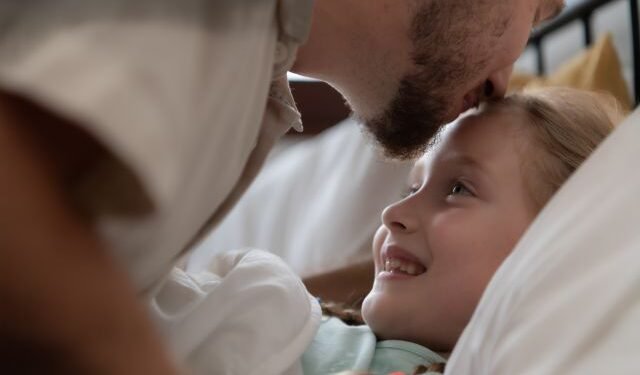Below is a hand-curated bibliography detailing research conducted on perceptions and attitudes towards single-parents and lone-parents. Hopefully it will kickstart somebody’s research project.
Amato, P. R. (2000). Diversity within single-parent families. In D. H. Demo, K. R. Allen, & M. A. Fine (Eds.), Handbook of family diversity (3rd ed., pp. 149-172). New York: Oxford.
Barajas, M. S. (2011). Academic achievement of children in single parent homes: A critical review. The Hilltop Review, 5(1), 4.
Bennett, M., & Jamieson, L. (1999). Perceptions of parents as a function of their marital status and sex. Infant and Child Development: An International Journal of Research and Practice, 8(3), 149-154.
Bryan, L. R., Coleman, M., Ganong, L. H., & Bryan, S. H. (1986). Person perception: Family structure as a cue for stereotyping. Journal of Marriage and the Family, 169-174.
Cain, R. (2016). Responsibilising recovery: Lone and low-paid parents, Universal Credit and the gendered contradictions of UK welfare reform. British Politics, 11(4), 488–507. Springer.
Chima, F. O. (1999). Fathers with single parenting roles: Perspectives on strengths, concerns and recommendations. Free Inquiry in Creative Sociology, 27(2), 3-13.
Cohen, O. (1995). Divorced fathers raise their children by themselves. Journal of divorce & remarriage, 23(1-2), 55-74.
DeJean, S.L., McGeorge, C.R. and Stone Carlson, T. (2012). Attitudes Toward Never-Married Single Mothers and Fathers: Does Gender Matter? Journal of Feminist Family Therapy, 24(2), pp.121–138. doi: https://doi.org/10.1080/08952833.2012.648121.
DeMaris, A., & Greif, G. (1997). Single custodial fathers and their children. In A. Hawkins, & D. Dollahite (Eds.), Generative fathers: Beyond deficit perspectives (pp. 134-146). Thousand Oaks, CA: Sage Publications.
Duncan, S. and Edwards, R. (1999) Lone Mothers, Paid Work: and Gendered Moral Rationalities, Basingstoke: Macmillan.
Eby, L. T., Allen, T. D., Noble, C. L., & Lockwood, A. L. (2004). Perceptions of Singles and Single Parents: A Laboratory Experiment 1. Journal of Applied Social Psychology, 34(7), 1329-1352.
Emmers-Sommer, T. M., Rhea, D., Triplett, L., & Triplett, L. (2003). Accounts of single fatherhood: A qualitative study. Marriage & family review, 35(1-2), 99-115.
Ford-Gilboe, M. (1997). Family strengths, motivation, and resources as predictors of health promotion behavior in single-parent and two-parent families. Research in Nursing & Health, 20(3), 205-217.
Ford-Gilboe, M. (2000). Dispelling Myths and Creating Opportunity: A Comparison of the Strengths of Single-Parent and Two-Parent Families. Advances in Nursing Science, 23(1), pp.41–58. Doi: https://doi.org/10.1097/00012272-200009000-00008.
Ganong, L.H. and Coleman, M. (1995). The content of mother stereotypes. Sex Roles, [online] 32(7-8), pp.495–512. doi: https://doi.org/10.1007/bf01544185.
Ganong, L.H., Coleman, M. and Riley, C. (1988). Nursing students’ stereotypes of married and unmarried pregnant clients. Research in Nursing & Health, 11(5), pp.333–342. doi: https://doi.org/10.1002/nur.4770110508.
Gilman, M. E. (2014). The return of the welfare queen. Am. UJ Gender Soc. Pol’y & L., 22, 247.
Goldscheider, F. and Kaufman, G. (2006). Single Parenthood and the Double Standard. Fathering: A Journal of Theory, Research, and Practice about Men as Fathers, 4(2), pp.191–208. doi: https://doi.org/10.3149/fth.0402.191.
Haire, A.R. and McGeorge, C.R. (2012). Negative Perceptions of Never-Married Custodial Single Mothers and Fathers: Applications of a Gender Analysis for Family Therapists. Journal of Feminist Family Therapy, 24(1), pp.24–51. doi: https://doi.org/10.1080/08952833.2012.629130.
Hilton, J. and Devall, E. (1998). Comparison of Parenting and Children’s Behavior in Single-Mother, Single-Father, and Intact Families. Journal of Divorce & Remarriage, 29(3), pp.23–54. doi: https://doi.org/10.1300/j087v29n03_02.
Hilton, J., Desrochers, S. and Devall, E. (2001). Comparison of Role Demands, Relationships, and Child Functioning in Single-Mother, Single-Father, and Intact Families. Journal of Divorce & Remarriage, 35(1), pp.29–56. doi: https://doi.org/10.1300/j087v35n01_02.
Jarrett, R.L. (1996). Welfare Stigma among Low-Income, African American Single Mothers. Family Relations, 45(4), p.368. doi: https://doi.org/10.2307/585165.
Jørgensen, M. B. (2012). Dependent, Deprived or Deviant? The construction of deserving and undeserving groups: The case of single mothers in Denmark.
Kahindi, L. W. (2018). Christian response to the phenomenon of single-parenthood in Nairobi. (Unpublished Dissertation). Kenyatta University.
Kamundia, E. M. (2012). The role of Anglican Church of Kenya in ministering to contemporary African single mothers: A case study of Embakasi Archdeaconry in the Diocese of Nairobi (Doctoral dissertation, University of Nairobi, Kenya).
Khunou, G. (2006). Fathers don’t stand a chance: Experiences of custody, access, and maintenance. Baba: men and fatherhood in South Africa, 265-277.
Kimani, E., & Kombo, K. (2010). Challenges facing nuclear families with absent fathers in Gatundu North District, Central Kenya, The African Symposium, 10(2), 1,25.
Kleist, D.M. (1999). Single-Parent Families: A Difference that Makes a Difference? The Family Journal, 7(4), pp.373–378. doi: https://doi.org/10.1177/1066480799074008.
Kotwal N., & Prabhakar, B. (2009). Problems Faced by Single Mothers. Journal of Social Science, 21(3): 197-204.
Lauster, N., & Easterbrook, A. (2011). No room for new families? A field experiment measuring rental discrimination against same-sex couples and single parents. Social Problems, 58(3), 389-409.
Lavie, N., Kaplan, A., & Tal, N. (2019). The Y Generation Myth: Perceptions of Young Israelis toward Gender and Family Life.
Mack-Canty, C., & Wright, S. M. (2012). The effects of social welfare development on poor single mothers in the United States: What is to be done?. Journal of the Motherhood Initiative for Research and Community Involvement.
Maier, C. A. (2012). Perceptions of positive attributes of never-married single custodial mothers and fathers (Doctoral dissertation, North Dakota State University).
Maier, C. A., & McGeorge, C. R. (2014). Positive attributes of never-married single mothers and fathers: Why gender matters and applications for family therapists. Journal of Feminist Family Therapy, 26(3), 163-190.
Monnat, S. M. (2010). Toward a critical understanding of gendered color-blind racism within the US welfare institution. Journal of Black Studies, 40(4), 637-652.
Quadlin, N., Jeon, N., Doan, L., & Powell, B. (2022). Untangling perceptions of atypical parents. Journal of Marriage and Family, 84(4), 1175-1195.
Rhiger, T. (2019). Why Do Some Single Mothers Struggle More Than Others?.
Rhodes, R. and Johnson, M.M. (2000). Students’ Perceptions of Single Parents and Social Injustice: A Women’s Issue. Affilia, 15(3), pp.434–446. doi: https://doi.org/10.1177/08861090022094038.
Richards, L.N. and Schmiege, C.J. (1993). Problems and Strengths of Single-Parent Families: Implications for Practice and Policy. Family Relations, 42(3), p.277. doi: https://doi.org/10.2307/585557.
Sepek, M. N., & Jevtic, A. V. (2019). Social Opinion On Single-Father Families And Their Influence On Child Education. In ICERI2019 Proceedings (pp. 577-584). IATED.
Sidel, R. (2006). Unsung Heroines: Single Others and the American Dream. University of California Press, Berkeley.
Steele, C.M. and Aronson, J. (1995). Stereotype threat and the intellectual test performance of African Americans. Journal of Personality and Social Psychology, [online] 69(5), pp.797–811. doi: https://doi.org/10.1037/0022-3514.69.5.797.
Strom, R., Fleming, G., & Daniels, S. (1984). Parenting strengths of single fathers. Elementary School Guidance & Counseling, 19(1), 77-87.
Thornton, I. & Iacoella, F. (2022). Conditionality and contentment: Universal Credit and UK welfare benefit recipients’ life satisfaction. Journal of Social Policy, 1–29. Cambridge University Press.
Troilo, J. and Coleman, M. (2008). College Student Perceptions of the Content of Father Stereotypes. Journal of Marriage and Family, 70(1), pp.218–227. doi: https://doi.org/10.1111/j.1741-3737.2007.00473.x.
Usdansky, M.L. (2009). A Weak Embrace: Popular and Scholarly Depictions of Single-Parent Families, 1900 – 1998. Journal of Marriage and Family, 71(2), pp.209–225. doi: https://doi.org/10.1111/j.1741-3737.2009.00592.x.
Valiquette-Tessier, S. C., Vandette, M. P., & Gosselin, J. (2016). Is family structure a cue for stereotyping? A systematic review of stereotypes and parenthood. Journal of Family Studies, 22(2), 162-181.
Wang, M. and Ngai, S.S.-Y. (2011). The Effects of Single Parenthood on Educational Aspiration: A Comparative Study of Children in the United Kingdom and Hong Kong. Child & Youth Services, 32(2), pp.135–154. doi: https://doi.org/10.1080/0145935x.2011.583175.
Woessmann, L. (2015). Single-parent families and student achievement: an international perspective. Ifo Institute at the University of Munich.
Wong, T., Yeoh, B. S., Graham, E. F., & Teo, P. (2004). Spaces of silence: Single parenthood and the ‘normal family’ in Singapore. Population, Space and Place, 10(1), 43-58.












